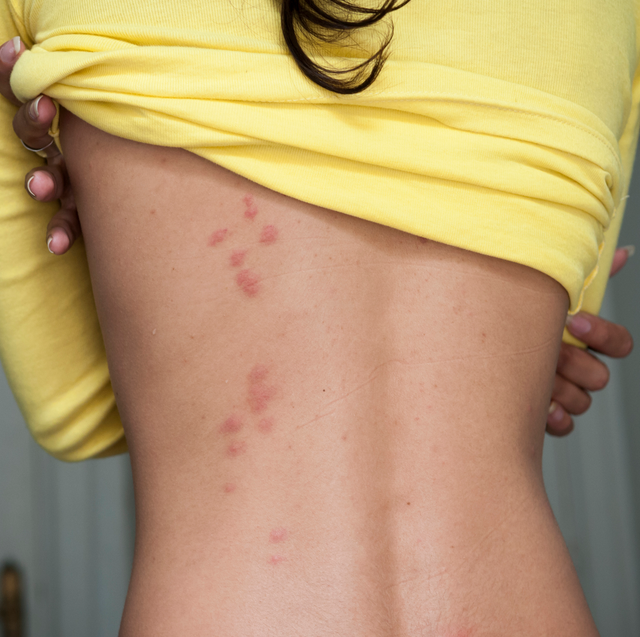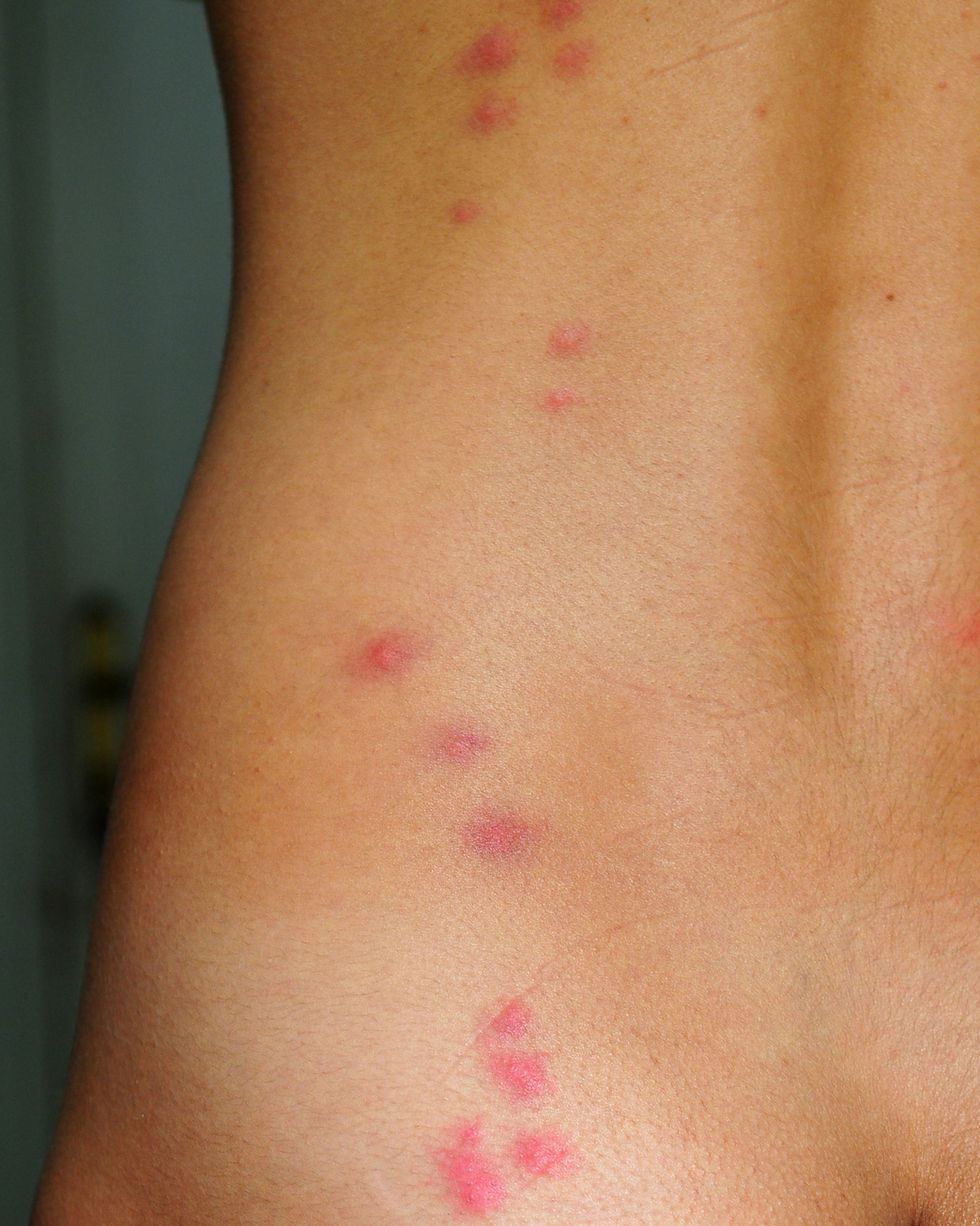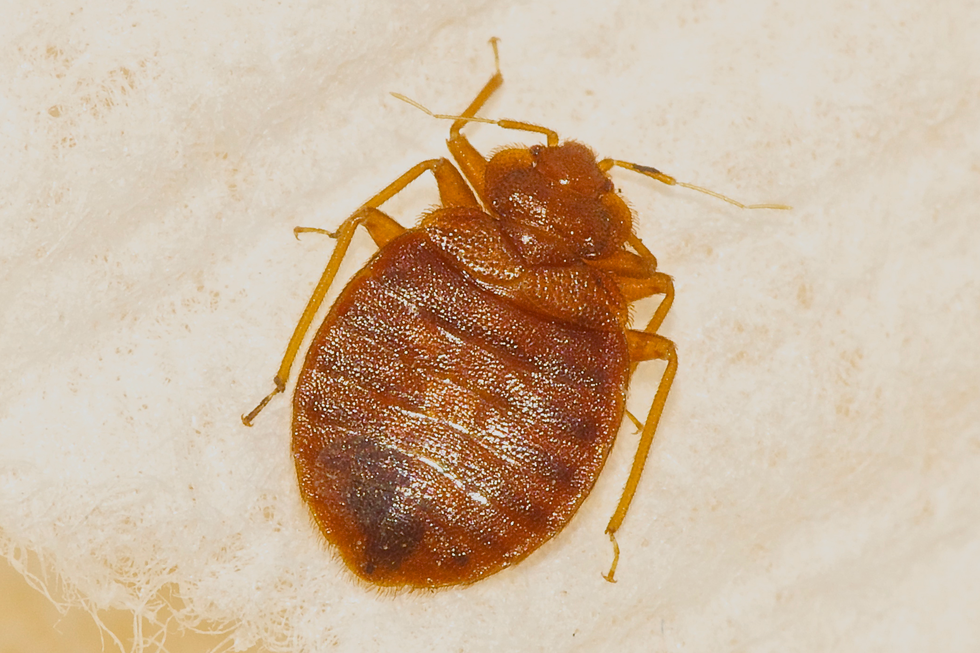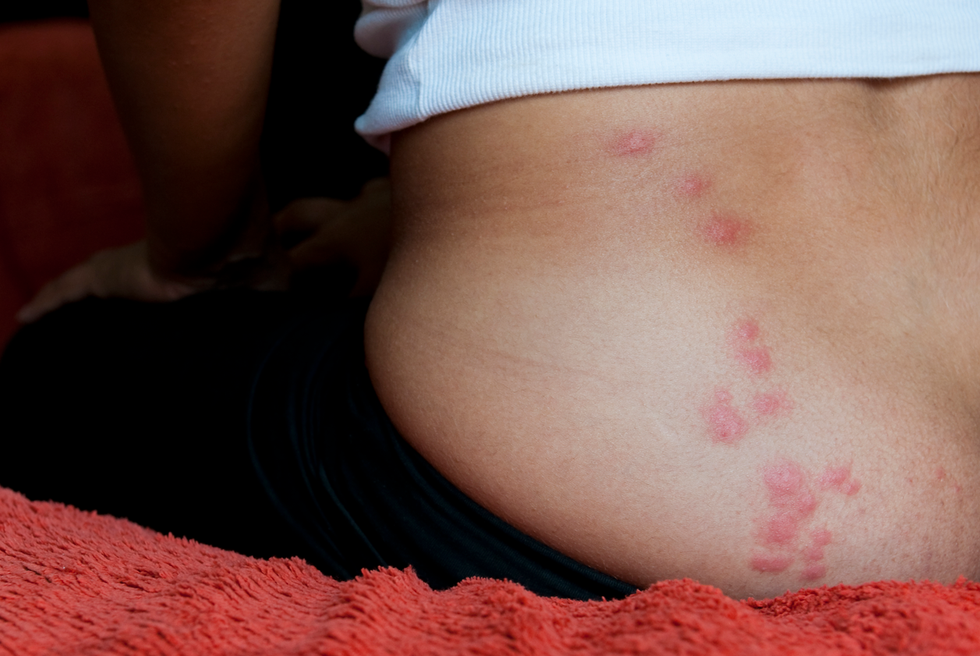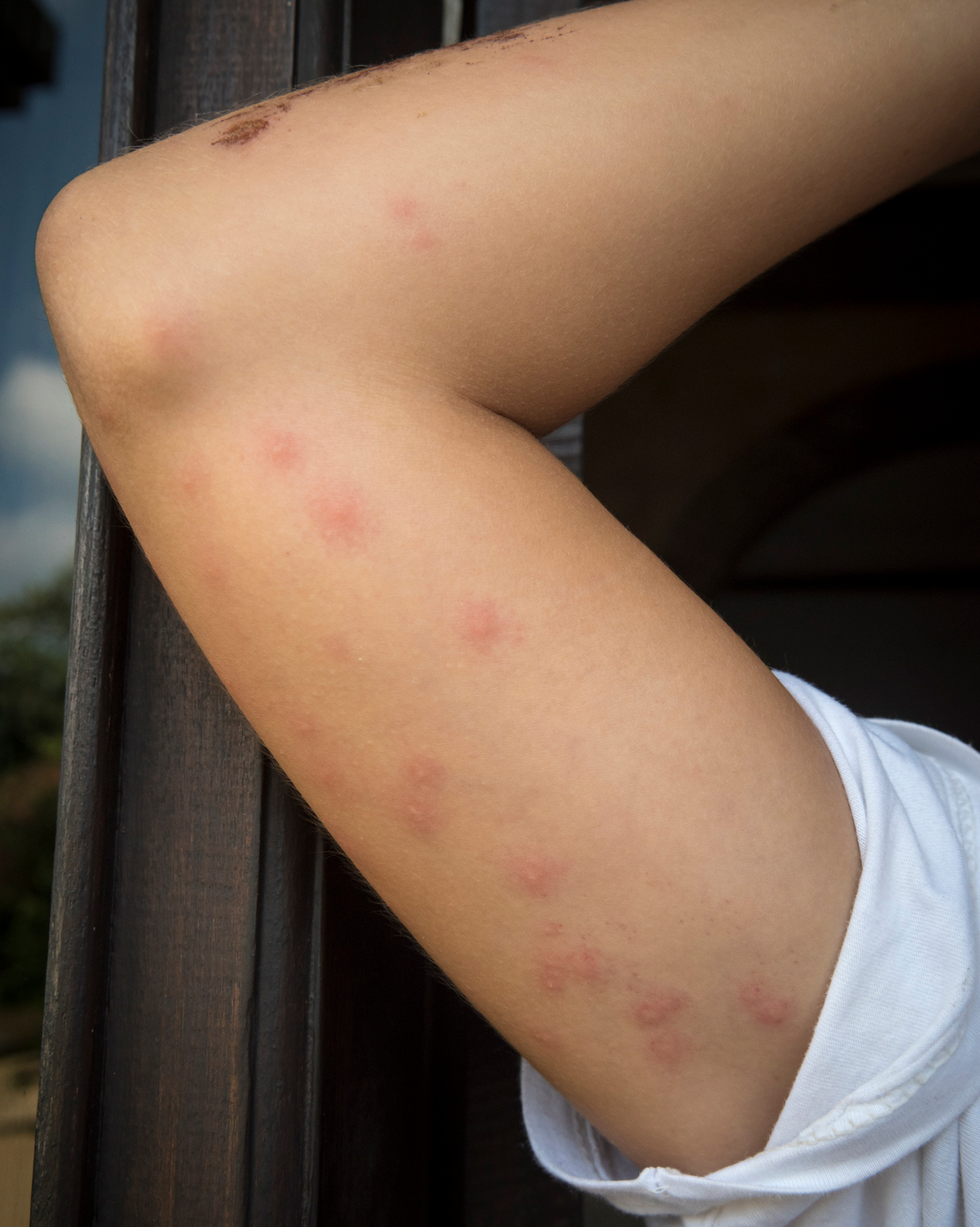Waking up with a fresh set of itchy bug bites can bring on its own set of worries. What, exactly, was biting you in the middle of the night? Was it a spider? Mosquito? Or—possibly the worst case scenario — could it have been bed bugs?
Although bed bugs might not be the first thing we think of when we wake up with a bite, the critters do get their food source from our blood — and will leave a little red bump in their wake after getting their fill.
But the trouble with identifying a bed bug bite — as is true for a lot of insects, including mosquitoes—is that it can be hard to identify the source of the bite, as everyone reacts differently to being bitten based on what their body’s immune response is. “Everybody’s going to respond differently,” says Timothy Gibb, PhD, a clinical professor of entomology at Purdue University. “Same thing’s true with a mosquito bite. Some people are going to swell up and it’s going to itch. That same mosquito could bite someone else and it’s hardly noticeable.”
In fact, Gibb says some people may have no response when being bitten by a bed bug at all, based solely on how their immune system handles the bite. That’s why it can be difficult to determine whether your bite is the result of a bed bug just by looking at it.
But there are a few things that can tip you off to the fact that bed bugs are the culprit of your bites. Here’s what to know, including bed bug bites pictures to help you visualize the symptoms.
What do bed bug bites look like?
The key bed bug bite symptom to look for is a red, raised bump, says Gibb, similar in appearance to what you would get when bitten by a spider or a mosquito. But what sets bed bugs apart from other insects is that oftentimes, their bites will present in a line on one part or side of your body. This is the result of what’s called “probing.”
“They probe the skin in several different places, I think probably to find best access to draw blood,” says Gibb. In fact, if you have screens on your windows — thereby keeping out other insects that might bite—but are still waking up with a line of 3 or 4 bites on your arm, it’s safe to suspect that bed bugs might be to blame, says Edwin Rajotte, PhD, a professor of entomology at Penn State University.
Another way to determine if your bites are a result from bed bugs is to look for the insects themselves. They naturally like to hide in on your mattress, especially in the corners, near the head end, and in the cord that goes around it. They also like to camp out behind the headboard, behind any pictures on the wall, and in any electrical sockets.
Adult bed bugs are about the the size of an apple seed and are very flat from top to bottom — almost as thin as a piece of paper — with a brownish color, says Rajotte. Baby bed bugs are also brownish in color, but pinhead-sized. Another key identifier? Look for black spots on your sheets, mattress, and mattress cover, which could be bed bug feces.
Where do bed bugs bite, exactly?
Bed bug bites will most commonly occur on the arms, neck, or trunk of the body, says Gibb, although they’ll bite anywhere they can find exposed skin. And — as their name suggests — bed bugs will bite you at night while you’re sound asleep.
“We’ve found it’s most active when people are most sound asleep, and that’s usually from about 2:00 to 4:00 in the morning,” says Gibb. “That’s natural for a parasite like that to do that because it’s going to protect it. People won’t see it, they won’t feel it. It makes their survivorship much more probable.”
Are bed bug bites itchy? Do they hurt?
Although some people will say a bed bug bite hurts somewhat—though not as intensely as the sting of a bee, for example — most complaints are due to the itching the bites cause, says Gibb. And that itching is due to the chemicals the bed bug inserts into your body during the bite, adds Rajotte.
“They’ve become what I consider the perfect parasite, because their mouthparts are kind of interesting,” says Gibb. “They will inject an anesthetic prior to biting, so people won’t feel it. And then they inject an anticoagulant that allows the blood to run easier for them to suck that up.” So while that system works great for the bugs, those left-over chemicals will usually lead to some uncomfortable itching on your end.
How long do bed bug bites last?
Although the duration and intensity of a bed bug bite will hugely vary from person to person, you typically won’t feel the effects of a bed bug bite — like itching and those raised red bumps — until mid-morning after a bite due to the anesthetic the bug injects, says Gibb. “So they certainly don’t feel it when the bite is occurring, but shortly after, probably within a day, for sure,” he adds.
From there, a bed bug bite will stay with you for typically at least 24 hours, though they could last three to five days after the initial bite, says Gibb. At that point, the bite will then start to slowly dissipate.
How to treat bed bug bites
If you’ve received a bed bug bite (and the itching that comes along with it), chances are, you’re going to want to speed up the treatment process. But unfortunately, the best way to do that is also the hardest way to do it: not scratching the bite, says Gibb, which will just further irritate the area.
If you’re having trouble keeping your fingers away from the bite, you can also try using an antihistamine — think Benadryl or Allegra, which are meant to curb allergy symptoms — to help mute that itchy feeling.
And if bed bugs are the cause of your bites, realize there’s no urgent need to panic. Yes, they might cost you a pretty penny and can be a pain to get rid of, but bed bugs can’t do any serious damage to your body. “They don’t kill people,” says Gibb. “A parasite would have a hard time surviving if it killed its host, and these do not.”
In fact, they don’t even transmit anything dangerous to you. “They’ve never been shown to transmit any diseases,” says Rajotte. “Unlike mosquitoes and ticks and things, which can transmit some pretty bad diseases, bed bugs do not. And so while they’re annoying and all that, they’re not going to harm your children or anything like that. They’re just annoying and you need to get rid of them.”
Ready to banish them from your home? Here’s our expert-approved, step-by-step guide to getting rid of bed bugs for good.
Stay updated on the latest science-backed health, fitness, and nutrition news by signing up for the Prevention.com newsletter here. For added fun, follow us on Instagram.

